Dental insurance companies in Texas
 Dental care is a crucial component that is often overlooked when it comes to maintaining our overall health. In Texas, where the landscape of dental insurance is as vast and varied as the state itself, finding the right dental insurance company can be as daunting as navigating a map without a compass. With a population of approximately 29 million residents and a competitive market of dental insurance providers, Texans have many options to ensure their smiles stay bright and healthy.
Dental care is a crucial component that is often overlooked when it comes to maintaining our overall health. In Texas, where the landscape of dental insurance is as vast and varied as the state itself, finding the right dental insurance company can be as daunting as navigating a map without a compass. With a population of approximately 29 million residents and a competitive market of dental insurance providers, Texans have many options to ensure their smiles stay bright and healthy.
Regular dental visits are vital for oral health and general well-being, with studies showing a link between dental health and conditions such as heart disease, osteoporosis, and diabetes. Despite this, many forgo dental care due to costs, which is where dental insurance steps in to make healthcare more accessible and affordable. Dental insurance plans in Texas typically cover preventive services like routine cleanings and may partially cover more expensive procedures through coinsurance.
Navigating the ins and outs of dental insurance can be complex, with various types of plans such as DHMOs, PPOs, and fee-for-service plans, each with its own set of rules regarding deductibles, annual maximums, and network restrictions. This article aims to demystify dental insurance in Texas, providing you with the knowledge to choose the best coverage for your needs, whether you’re an individual or seeking a family plan. We’ll explore the top dental insurance companies in Texas, their plan offerings, and what you can expect in terms of costs and coverage. With the correct information, you can make an informed decision and take a proactive step towards safeguarding your dental health.
Types of Dental Insurance Coverage available in TX
Dental Health Maintenance Organization (DHMO) Plans
DHMO plans are designed to provide affordable coverage focusing on preventive care. These plans typically do not have deductibles or annual maximums, which can make them a cost-effective choice for many individuals. However, enrollees must select a primary care dentist from the plan’s network and are generally required to obtain referrals for specialist treatments. Out-of-network care is not covered under DHMO plans, which means patients must stick to the network to receive benefits.
Preferred Provider Organization (PPO) Plans
PPO plans balance cost and flexibility, allowing patients to see any dentist at lower rates than those within the network. These plans usually involve higher out-of-pocket costs than DHMO plans, including higher premiums and deductibles. PPOs typically have a larger network of providers, and patients are not required to choose a primary care dentist or get specialist referrals. While PPOs provide more flexibility, they also come with an annual coverage limit.
Fee-for-Service or Indemnity Plans
Indemnity or Fee-for-Service plans offer the greatest freedom, allowing patients to visit any healthcare provider. These plans are more traditional and were common before the rise of managed care networks. Under an indemnity plan, the insurance company pays a predetermined percentage of the cost for services, and the patient is responsible for the remainder. There is usually a deductible that must be met before the insurance begins to pay. These plans can be more expensive due to the lack of network agreements and the potential for balance billing by providers.
Direct Reimbursement Plans
Direct Reimbursement plans are self-funded insurance plans that reimburse patients for a percentage of their dental care costs. Employers often fund these plans and allow patients to choose any dentist without network restrictions. The reimbursement is based on the amount spent on dental care rather than the type of treatment received, providing a high degree of flexibility. However, details of the reimbursement process and coverage limits can vary.
Dental Insurance Costs and Premiums in Texas
Premium Ranges
The cost of dental insurance premiums in Texas can vary widely depending on the type of plan and the level of coverage selected. For individuals, monthly premiums can range from as low as $14.99 to as high as $60. Family plans, which provide coverage for multiple family members, typically have higher monthly premiums, ranging from $50 to $150. These figures represent a general range, and the exact premium will depend on the specific plan and the insurance provider.
Deductibles
Deductibles are the amount you pay out-of-pocket for dental services before your insurance plan starts to cover the costs. In Texas, individual dental insurance plan deductibles can range from $0 to $150. Family plans often have higher deductibles, reflecting the coverage for more individuals. Once the deductible is met, the insurance plan begins to pay a portion or all of the remaining costs for covered services.
Maximum Annual Benefits
Dental insurance plans typically set a maximum annual benefit, the most the insurance company will pay for covered services within a given year. These yearly maximums in Texas range from $1,000 to $3,000 per person. Some plans may offer even higher annual maximums or, in some instances, no annual maximum. Once the yearly maximum is reached, the patient is responsible for all additional dental costs for the remainder of the benefit period.
Several major dental insurance companies in Arizona provide services to individuals, families, and businesses. These include Delta Dental of Arizona, UnitedHealth, Ameritas, and Humana. Aetna, Cigna, Delta Dental of Arizona, MetLife, Anthem, Spirit Dental, and Blue Cross Blue Shield of Arizona.
It’s important to note that the specifics of each plan, including coverage details and costs, can vary. Therefore, it’s recommended to thoroughly research each plan and consult with the insurance provider to understand the full details of the coverage.
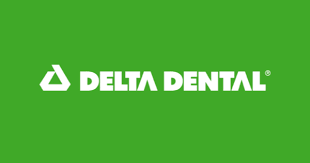
Delta Dental’s commitment to oral health extends beyond insurance, with programs and initiatives to improve dental care access and education.
Delta Dental
Delta Dental is one of the largest and most recognized dental insurance providers in the United States, offering various plans for individuals, families, and employers. Their plans typically include PPO and HMO/Prepaid options, providing flexibility in choosing dentists and managing costs. Delta Dental plans often emphasize preventive care, covering two cleanings and yearly exams at 100%. They also offer extensive networks of dentists, making it easier for members to receive care without significant out-of-pocket expenses.

With options for individuals and families, Humana aims to make dental care affordable and accessible.
Humana
Humana offers a range of dental plans in Texas designed to fit various needs and budgets. Their plans include PPO and DHMO options, providing flexibility in choosing providers and managing costs. Humana’s plans emphasize preventive care, covering services like cleanings and exams at 100%, and offer a mix of coverage for basic and major services. Some plans feature no waiting periods for preventive care and provide immediate discounts on dental care plus additional services such as vision and prescription.
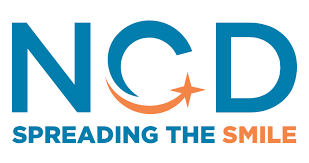
Nationwide is known for its broad portfolio of insurance products, and its dental plans are structured to provide valuable coverage and peace of mind for members.
NCD (Nationwide)
Nationwide, through its NCD dental plans, provides a variety of dental insurance options designed to meet the needs of individuals and families. Their plans often include preventive, basic, and major dental services, with specific emphasis on flexibility and affordability. Nationwide’s dental plans may offer features such as no waiting periods for preventive services, a range of annual maximum benefit options, and the ability to see any dentist with the possibility of higher savings when choosing an in-network provider.

Cigna’s dental plans are available in various states, including Texas, where the plan is known as Cigna Dental Choice and uses the national Cigna DPPO Advantage network.
Cigna
Cigna offers affordable dental insurance plans for individuals, featuring bundled plans that include dental, vision, and hearing benefits. Their dental plans come with $50-$100 deductibles and up to $2,500 in dental benefits. Cigna plans cover a wide range of services, including dental implants, with certain plans offering benefits up to $3,650. They emphasize the importance of preventive care, covering 100% for services like cleanings, exams, and X-rays, and provide a structure for basic and major procedures with varying coverage percentages.
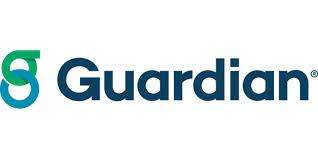
They also offer DHMO plans, which provide more significant savings but require choosing an in-network dentist.
Guardian
Guardian offers affordable dental insurance plans for individuals, families, and businesses without waiting periods for preventive services. Their plans are available directly or through the Federal Exchange Marketplace, fitting various budgets and coverage needs. Guardian’s dental plans include PPO options with different annual maximums and deductibles, emphasizing preventive services like oral exams, cleanings, and X-rays, which are covered at 100% once the annual deductible is met.

Plan highlights include two exams and cleanings per year covered at 100%, up to $2,000 annual maximum benefit amount per person, and discounted fees typically 30% below average community charges.
Ameritas
Ameritas provides affordable dental insurance with options for both individuals and families, emphasizing the absence of enrollment fees and waiting periods. Their plans offer the flexibility to visit any dentist, with additional savings for those who choose in-network providers. Ameritas boasts a large network with over 400,000 access points and 100,000 in-network dentists nationwide.
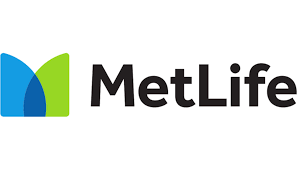
They also provide unique features, such as orthodontic benefits for children and adults in certain plans and special programs to enhance oral health and wellness.
Metlife
MetLife offers comprehensive dental insurance plans that cater to individuals, families, and employers, focusing on flexibility and choice. Their plans, which include PPO and DHMO options, cover a wide range of dental services from preventive care to major procedures. MetLife’s dental plans are known for their extensive network of dentists, competitive coverage options, and customer service.

Anthem also provides online tools for members to manage their dental health and insurance benefits easily.
Anthem
Anthem offers a variety of individual and family dental insurance plans. These plans cover preventive care such as regular cleanings, exams, X-rays, and procedures like fillings, crowns, and root canals. Anthem emphasizes the importance of dental coverage for the whole family, including options that cover children, orthodontics, and dentures. Their plans are designed to meet both needs and budget, with features like no waiting periods for preventive services, no annual benefit limits for pediatric-age kids, and high or no annual benefit maximums for other services.
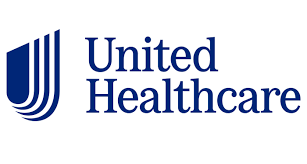
They also provide access to a large network of dental providers, ensuring members can find quality care while potentially saving on out-of-pocket costs.
UnitedHealthcare
UnitedHealthcare offers a variety of dental insurance plans tailored to meet different needs, including individual and employer plans. Their coverage options range from basic preventive care to major services like root canals, crowns, and even orthodontics in some plans. UnitedHealthcare emphasizes the importance of preventive care, with many plans offering no deductible or waiting period for such services.
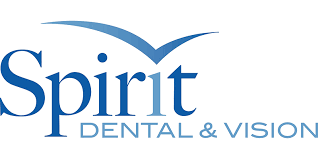
Spirit Dental plans are designed to provide flexibility and peace of mind, with options available for individuals and families seeking comprehensive dental coverage.
Spirit Dental
Spirit Dental, a part of the Ameritas network, is known for its no-waiting-period policies, which allow immediate coverage for all services, including major dental work. This feature sets Spirit Dental apart from many other insurance providers. Their plans typically offer a choice between three annual maximums and cover 100% of preventive care, with a unique aspect being the inclusion of implants and major services from day one.
| Insurance Company | Network Type | Preventive Care Coverage | Basic Procedures Coverage | Major Procedures Coverage | Annual Maximum | Deductibles | Waiting Period |
|---|---|---|---|---|---|---|---|
| Anthem | PPO | 100% with no waiting period | 80% after deductible | 50% after deductible | Up to $2,500 | Low deductible | Shorter for basic, complex, and major services |
| Guardian | PPO, DHMO | 100% after deductible | Varies by plan | Varies by plan | $1,000 - $1,500 | From $50 | Not specified |
| Ameritas | PPO | 100% for two exams and cleanings per year | Varies by plan | Not specified | $1,000 or $2,000 | Varies by plan | No waiting periods |
| Cigna | PPO | 100% for preventive care | Subject to deductible and coinsurance | Subject to deductible and coinsurance | Up to $2,500 | $50-$100 | Not specified |
| Humana | PPO, DHMO | 100% for preventive services | Covered after deductible | Covered after deductible | Not specified | Not specified | No waiting period for preventive care |
| Spirit Dental | PPO | 100% with no waiting period | Covered from day one | Covered from day one, including implants | Varies by plan | Varies by plan | No waiting periods |
| UnitedHealthcare | PPO | 100% for preventive care | Varies by plan | Varies by plan | Not specified | Not specified | Not specified |
| Delta Dental | PPO, HMO/Prepaid | 100% for two cleanings and exams per year | Varies by plan | Varies by plan | Varies by plan | Not specified | Not specified |
| MetLife | PPO, DHMO | 100% for preventive care | Varies by plan | Varies by plan | Varies by plan | Varies by plan | Varies by plan |
| NCD (Nationwide) | PPO | 100% for preventive care | Not specified | Varies by plan | Not specified | Varies by plan | Varies by plan |
Dental coverage details -Network Size and Access
The size of a dental insurance network and the access it provides to dentists are critical factors in the value of a dental plan. A larger network means more choices for patients, potentially leading to better matches between patients and dentists regarding services, quality of care, and convenience. Insurers with larger networks often negotiate lower fees with dentists, which can translate into savings on out-of-pocket costs for members. However, it’s essential to consider the network’s size, the quality of care provided by its dentists, and the discounts offered. Some networks may offer better discounts or have a care agenda that focuses on reducing the total cost of care.
In-Network vs. Out-of-Network Costs
Choosing an in-network dentist typically results in lower out-of-pocket expenses due to pre-negotiated rates between the insurance company and the provider. In-network plans often cover a higher percentage of the cost of dental services, reducing the amount members need to pay. Conversely, out-of-network dentists have not agreed to these negotiated rates, so their fees may be higher, and insurance plans usually cover a smaller percentage of these costs. This means patients will likely spend more out-of-pocket when they opt for out-of-network providers. Additionally, out-of-network providers may require payment during service, and patients may have to file for reimbursement from their insurance company.
Finding In-Network Providers
Insurance companies typically offer tools and resources to help members find in-network dentists. For example, Delta Dental provides a “Find a Dentist” tool on its website, allowing members to search for in-network providers in their area by entering a ZIP code or using their current location. These tools are designed to make it easier for members to locate dentists who accept their insurance, ensuring they can take full advantage of their plan’s benefits and minimize out-of-pocket costs. It’s always a good idea to verify a dentist’s in-network status directly with the insurance company before scheduling an appointment to avoid unexpected expenses.
Copays and Coinsurance
Copays and coinsurance are two mechanisms through which dental insurance plans share costs with members. A copay is a fixed amount a member pays out-of-pocket for a specific service at the time of the visit. For example, a plan might require a $20 copay for each routine cleaning. Coinsurance, conversely, is a percentage of the service cost that the member is responsible for paying after the deductible is met. For instance, if a dental procedure costs $100 and the coinsurance is 20%, the member would pay $20, and the insurance would cover the remaining $80. Preventive care, such as cleanings and check-ups, is often covered at 100%, meaning the member pays nothing out-of-pocket. More expensive procedures, like fillings, crowns, or root canals, are typically covered at a lower percentage, resulting in higher out-of-pocket costs for the member.
Waiting Periods and Limitations
Many dental insurance plans include waiting periods for certain types of services. This means a new member must wait a specified amount, often ranging from a few months to a year, before the plan will cover costs for specific procedures, such as fillings, crowns, or orthodontic treatment. These waiting periods are designed to prevent individuals from signing up for insurance, receiving expensive treatments, and then canceling the policy. Additionally, dental plans may have limitations or exclusions on certain services, such as cosmetic procedures, which are not covered because they are not considered medically necessary. It’s important for members to review their plan details to understand any waiting periods, limitations, or exclusions that may apply.
Impact of Dental Health on Overall Health
The correlation between dental health and overall health is well-documented. Poor dental health has been linked to a variety of systemic conditions, including heart disease, diabetes, and osteoporosis. For example, gum disease (periodontitis) is associated with an increased risk of cardiovascular disease, as the inflammation of the gums can affect the heart. Additionally, conditions like diabetes can worsen gum disease, creating a cycle that impacts overall health. This underscores the importance of regular dental care, not only to maintain oral health but also to support general well-being. Regular check-ups and cleanings can help prevent serious conditions and contribute to a healthier life.
Understanding these additional considerations—copays and coinsurance, waiting periods and limitations, and the impact of dental health on overall health—can help individuals make more informed decisions about their dental insurance and care, ensuring they maximize their benefits while maintaining their oral and general health.
Frequently Asked Questions
- What is the average cost of dental insurance in Arizona?
- The average dental insurance premium in Arizona is approximately $31.17 per month. However, the actual prices can vary depending on factors such as zip code, age, gender, and coverage level.
- How much do most people pay for dental insurance?
- The cost of dental insurance can vary widely based on the plan, location, and individual circumstances. On average, adults who purchase their own or family stand-alone dental coverage through the exchange in Arizona pay premiums ranging from $31 to $104 per month.
- What is the most common type of dental insurance?
- The most common types of dental insurance plans are Preferred Provider Organizations (PPO), Dental Health Maintenance Organizations (DHMO), Dental Discount Plans, and Managed Fee-for-Service Plans. Among these, PPO is one of the most common types of plans available.
- Does Arizona Medical cover dental?
- Yes, Arizona's Medicaid program, known as the Arizona Health Care Cost Containment System (AHCCCS), does cover certain dental procedures. However, the covered services can differ based on enrollment. Adults enrolled in Medicaid in Arizona are eligible to receive up to $2,000 in total dental services divided between diagnostic/preventive and emergency dental care.

